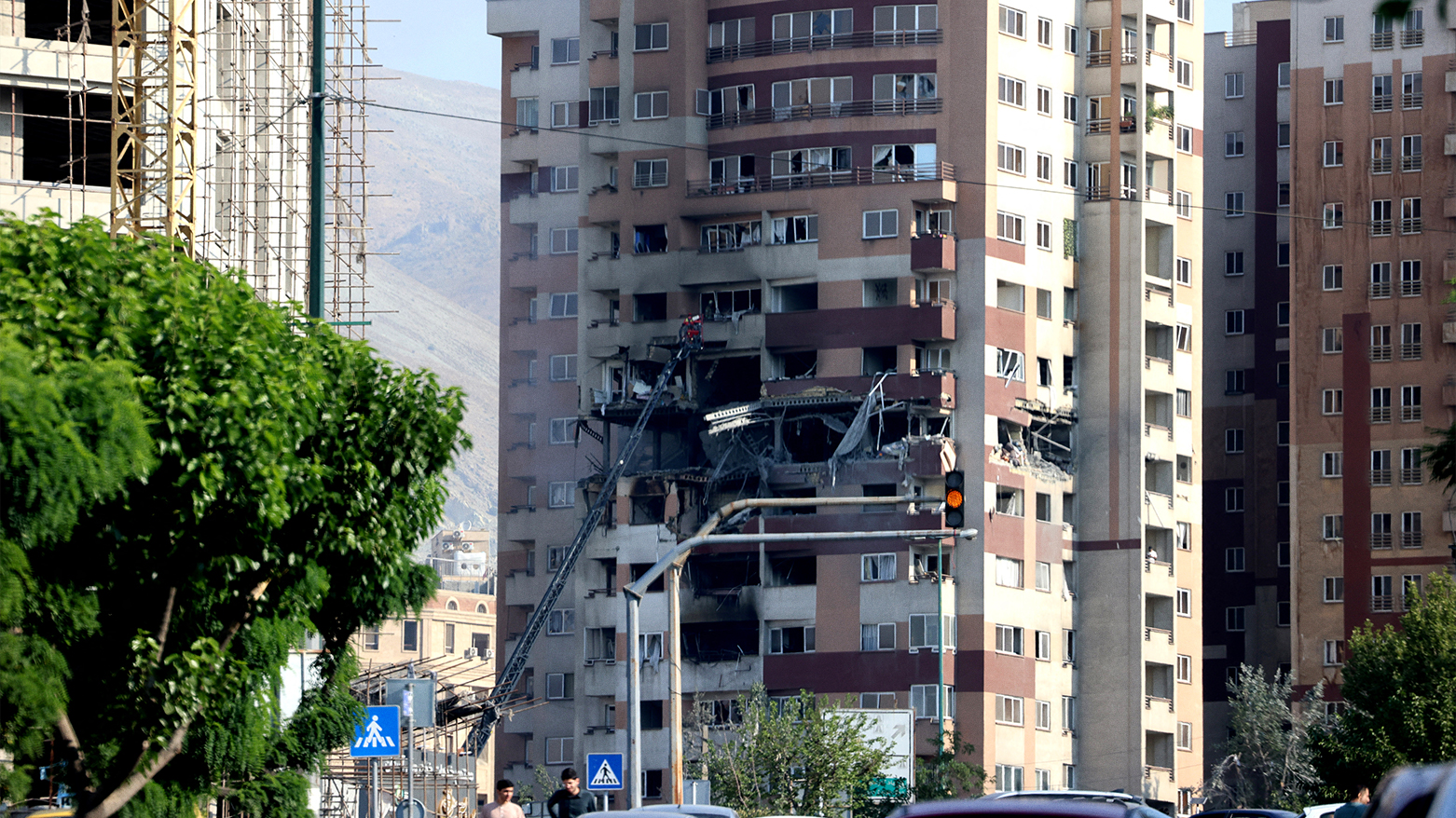Details Emerge from Israel’s Precision Assault on Iran
On Friday, Israel launched major airstrikes on Iran’s nuclear and military sites, killing top commanders. Cities like Tehran and Natanz were hit. Talks with the U.S. hang in the balance, and regional tensions soared amid fears of wider war.

By Kamaran Aziz
ERBIL (Kurdistan24) – Tensions between Israel and Iran escalated dramatically on Friday, June 13, 2025, as Israeli fighter jets and missiles targeted Iran’s nuclear facilities, ballistic missile factories, and top military commanders in a coordinated and unprecedented assault.
According to Iranian media, the Israeli operation struck the Natanz uranium enrichment facility, key ballistic missile production centers, and military command posts in Tehran and elsewhere. The Israeli military cited preemptive defense as the rationale for the operation, warning of imminent Iranian threats.
Iran’s state television confirmed the death of several top military and scientific figures, including Hossein Salami, commander of the Islamic Revolutionary Guard Corps (IRGC), and General Gholam Ali Rashid, head of the Khatam al-Anbiya Central Command. Also reported killed were Chief of Staff Mohammad Bagheri, Islamic Azad University President Mohammad Tehranchi, and nuclear scientist Fereydoun Abbasi.
U.S. media outlets later suggested that Ali Shamkhani, senior adviser to Iran’s Supreme Leader, also succumbed to injuries sustained in the attack.
Israeli Prime Minister Benjamin Netanyahu, in a televised message, said: “We have targeted Iran’s top leadership. This is a precise military operation aimed at neutralizing the threat posed by Iran’s regime.” He added that the campaign could extend over several days to eliminate residual risks.
The semi-official Tasnim News Agency published a list of six Iranian nuclear and missile experts reportedly killed in the Israeli strikes:
- Abdolhamid Minouchehr
- Ahmadreza Zolfaghari
- Amir Hossein Feqhi
- Mohammad Mehdi Tehranchi
- Fereydoun Abbasi
- Motallebizadeh
Areas and Cities Targeted by Israeli Strikes
According to the Islamic Revolutionary Guard Corps (IRGC), the following locations were hit by Israeli attacks:
Tehran and surrounding areas:
- Tehran (multiple districts)
- Qeytarieh, Tehran
- Niavaran, Tehran
- Western Tehran and Chitgar
- Eastern Tehran
- Mehrabad, Tehran
- Mahallati Township (multiple strikes)
- Shahid Chamran Nobonyad Township
- A tower in Kamraniyeh
- Narmak, Tehran
- Saadat Abad
- Andarzgoo, Tehran
- Orkideh Complex in Sattarkhan
- Shahid Daghaghi Township (extensively struck)
- Farahzadi, Tehran
- General Staff Headquarters of the Armed Forces
- Ozgol, Tehran
- Residence of Ali Shamkhani
- Shahrara, Tehran
- Professors' Residential Complex, Ketab Square
- Garmdareh
- Marzdaran, Tehran
Other strategic and military sites:
- Natanz nuclear site (multiple strikes)
- Parchin military facility
- Several military bases in Tehran
- Natanz nuclear reactor and surrounding facilities
- Khondab
- Arak heavy water reactor
- Borujerd
- Khorramabad
- Hamedan
- Parchin
- Qasr-e Shirin
- Tabriz
- Piranshahr, West Azerbaijan
- Kermanshah
- Ilam
- Arak
An Israeli military spokesperson stated that Tel Aviv targeted “dozens” of nuclear and military sites, adding that Iran now possesses sufficient fissile material to produce up to 15 nuclear bombs within days.
According to Axios, a simultaneous covert operation inside Iran targeted missile storage facilities and air defense infrastructure.
Israeli Defense Minister Israel Katz said further drone and missile attacks from Iran on Israeli civilian areas are expected in the coming days, describing the situation as "an evolving national emergency." Meanwhile, U.S. Senator Marco Rubio expressed support for Israel, stating it acted independently to defend itself against existential threats.
The sixth round of nuclear negotiations with the United States hangs in the balance, which is scheduled for Sunday, June 15, in Muscat, Oman.
U.S. President Donald Trump, commenting earlier this week, acknowledged the likelihood of an Israeli strike but reiterated hope for a peaceful resolution.